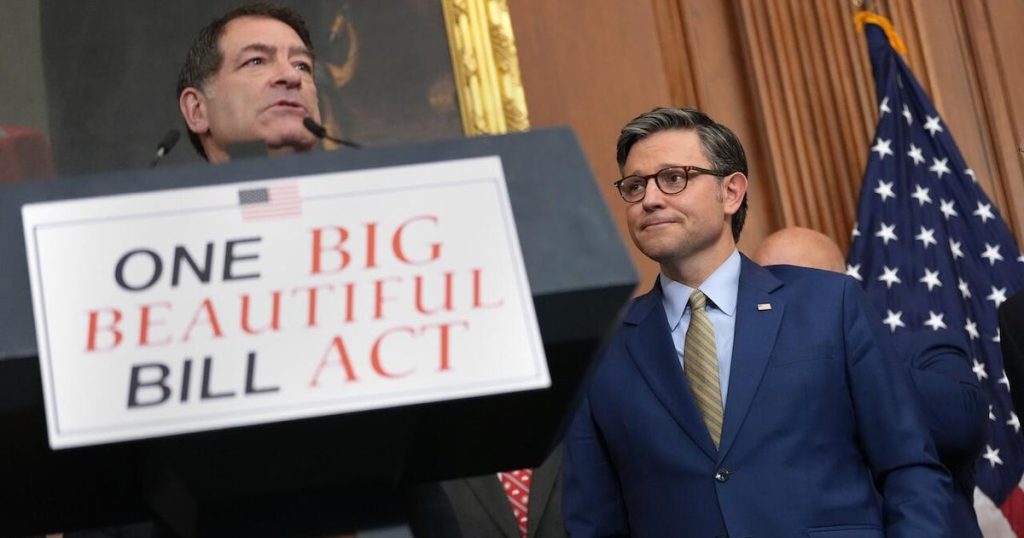Six Nobel laureate economists said a massive budget bill passed by House lawmakers last month and backed by President Trump would weaken key safety-net programs while greatly lifting the federal debt.
The tax and spending package, which Republicans have dubbed the “one big beautiful bill,” would hurt millions of Americans by slashing Medicaid and food stamps, the economists wrote in a June 2 letter on behalf of the Economic Policy Institute, a left-leaning think tank.
“Even with the safety net cuts, the House bill leads to public debt rising by over $3 trillion in coming years (and over $5 trillion over the next decade if provisions are made permanent rather than phasing out),” the economists state. “The higher debt and deficits will put noticeable upward pressure on both inflation and interest rates in coming years.”
The authors of the letter are Daron Acemoglu, Peter Diamond and Simon Johnson of MIT; Oliver Hart of Harvard University; Joseph Stiglitz of Columbia University; and Paul Krugman of City University of New York.
Including interest, the House bill would boost the nation’s debt by $3.1 trillion, according to the Committee for a Responsible Federal Budget, an advocacy group focused on fiscal policy.
The nation’s rising deficit — the gap between annual government spending and revenue — and growing federal debt have sounded alarms on Wall Street, roiling financial markets and raising questions about the country’s long-term financial stability.
The Trump administration describes the budget package as a “once-in-a-generation opportunity” to cut government spending and drive economic growth.
Senate hurdles
The Senate is expected to take up the bill this week, and its fate is uncertain amid strong opposition from Democrats and concerns by some Republicans.
“One of the things this ‘big and beautiful bill’ is, is, it’s a vehicle for increasing spending for the military and for the border,” Sen. Rand Paul, a Republican from Kentucky, said Sunday on “Face the Nation with Margaret Brennan.” Paul is among a small group of Senate Republicans who have expressed opposition to the bill.
“It’s about $320 billion in new spending. To put that in perspective, that’s more than all the DOGE cuts that we have found so far,” he added, referring to reductions in government spending advanced by Elon Musk’s Department of Government Efficiency. “So, the increase in spending put into this bill exceeds the DOGE cuts.”
Raising inequality?
The six economists who penned the letter criticizing the Republican bill also said that large tax cuts under the legislation, combined with the hits to Medicaid and food stamps, would increase inequality.
“The combination of cuts to key safety net programs like Medicaid and SNAP and tax cuts disproportionately benefiting higher-income households means that the House budget constitutes an extremely large upward redistribution of income,” they said.
Mr. Trump has said the proposed tax cuts, which would extend reductions passed under his 2017 Tax Cuts and Jobs Act, would boost workers and incentivize investment in domestic manufacturing.
The White House Council of Economic Advisers claims that the Trump administration’s policies, which include steep import tariffs on major U.S. trading partners, will supercharge growth and shrink the deficit.
contributed to this report.


